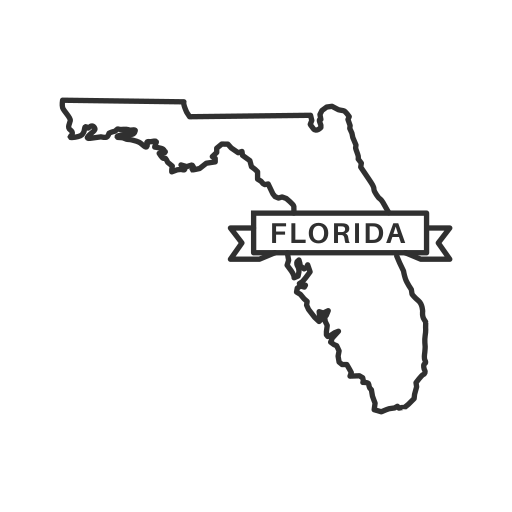Florida Agriculture Statistics 2023: Facts about Agriculture in Florida reflect the current socio-economic condition of the state.

LLCBuddy editorial team did hours of research, collected all important statistics on Florida Agriculture, and shared those on this page. Our editorial team proofread these to make the data as accurate as possible. We believe you don’t need to check any other resources on the web for the same. You should get everything here only 🙂
Are you planning to start a Florida LLC business in 2023? Maybe for educational purposes, business research, or personal curiosity, whatever it is – it’s always a good idea to gather more information.
How much of an impact will Florida Agriculture Statistics have on your day-to-day? or the day-to-day of your LLC Business? How much does it matter directly or indirectly? You should get answers to all your questions here.
Please read the page carefully and don’t miss any words.
On this page, you’ll learn about the following:
Top Florida Agriculture Statistics 2023
☰ Use “CTRL+F” to quickly find statistics. There are total 7 Florida Agriculture Statistics on this page 🙂Florida Agriculture “Latest” Facts
- Florida has the eighth highest potential for solar energy production in the U.S., according to Scientific American, but it produces less than Vermont, which receives 2.4% of its electricity from solar.[1]
- 2020 estimates place the overall crop value at wholesale for all producers with 10,000 or more sales at 4.80 billion, up from 4.42 billion in 2019.[2]
- Florida’s total wholesale value of floriculture crops sold by businesses with at least 10,000 in sales is 113 billion, an increase of 6% over the previous year.[2]
- According to the 2017 census, 57% of the nation’s total citrus farmlands are citrus fruit orchard groves.[3]
- Florida accounts for 78% of the U.S. wholesale value of cut cultivated greens 29% of the price of potted blooming plants and 69% of the price of foliage plants.[2]
- Adding to the dissection of citrus according to census statistics, Florida accounts for 422,421 of the nation’s total orange acres.[4]
- Florida produced 67% of citrus fruits, 74% of oranges, 54% of grapefruit, and 58% of tangerines.[3]
Also Read
How Useful is Florida Agriculture Facts
One key benefit of Florida Agriculture Facts is their utility in decision-making processes. Farmers rely on this information to make strategic choices about crop selection, planting schedules, and pest management. Having access to data on crop yields, weather patterns, and market trends enables farmers to optimize their operations and maximize their profits. Similarly, policymakers use agricultural facts to craft policies that support the sustainable growth of the industry and ensure food security for Floridians. Without reliable information, it would be challenging for stakeholders to make informed decisions that benefit the entire agricultural community.
Furthermore, Florida Agriculture Facts play a crucial role in educating consumers about where their food comes from. In an era where people are increasingly disconnected from the sources of their food, having access to information about local agriculture helps bridge that gap. From understanding the environmental impact of different farming practices to knowing the nutritional value of fresh produce, consumers can make more informed choices when they are armed with the facts. By promoting transparency in the agricultural sector, Florida Agriculture Facts empower consumers to support local farmers and make choices that align with their values.
Additionally, Florida Agriculture Facts are invaluable for researchers and educators in the agricultural field. By studying trends in crop production, soil health, and agricultural sustainability, researchers can develop innovative solutions to challenges facing the industry. Moreover, educators can use this information to create meaningful learning experiences for students interested in pursuing a career in agriculture. By providing a rich source of data, Florida Agriculture Facts contribute to the ongoing advancement of knowledge and best practices within the agricultural community.
In conclusion, the usefulness of Florida Agriculture Facts cannot be overstated. From facilitating decision-making processes to educating consumers and empowering researchers, these facts are essential for the health and vitality of the state’s agricultural industry. As the sector continues to evolve in response to changes in technology, climate, and consumer preferences, having access to reliable information will only grow in significance. By investing in data collection and dissemination efforts, Florida can continue to support a thriving agricultural sector that benefits both the economy and the environment.
Reference
- businessinsider – https://markets.businessinsider.com/news/stocks/florida-economy-facts-2019-5-1028214563
- fdacs – https://www.fdacs.gov/Agriculture-Industry/Florida-Agriculture-Overview-and-Statistics
- kidadl – https://kidadl.com/facts/11-florida-agriculture-facts-that-all-aspiring-farmers-should-know
- usda – https://www.usda.gov/media/blog/2019/10/15/agriculture-sunshine-state
